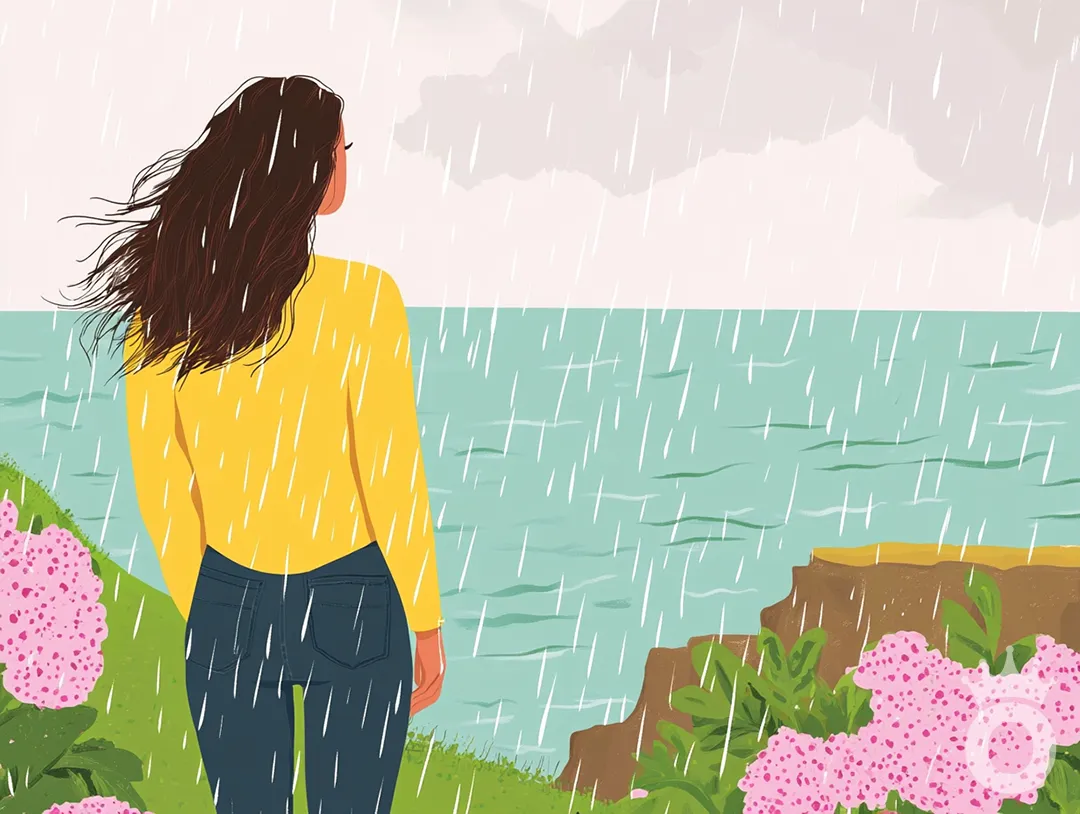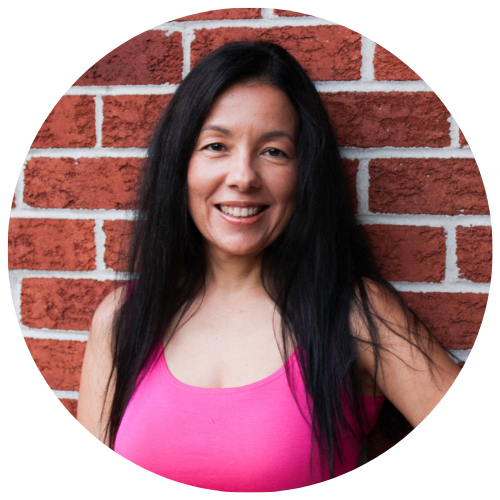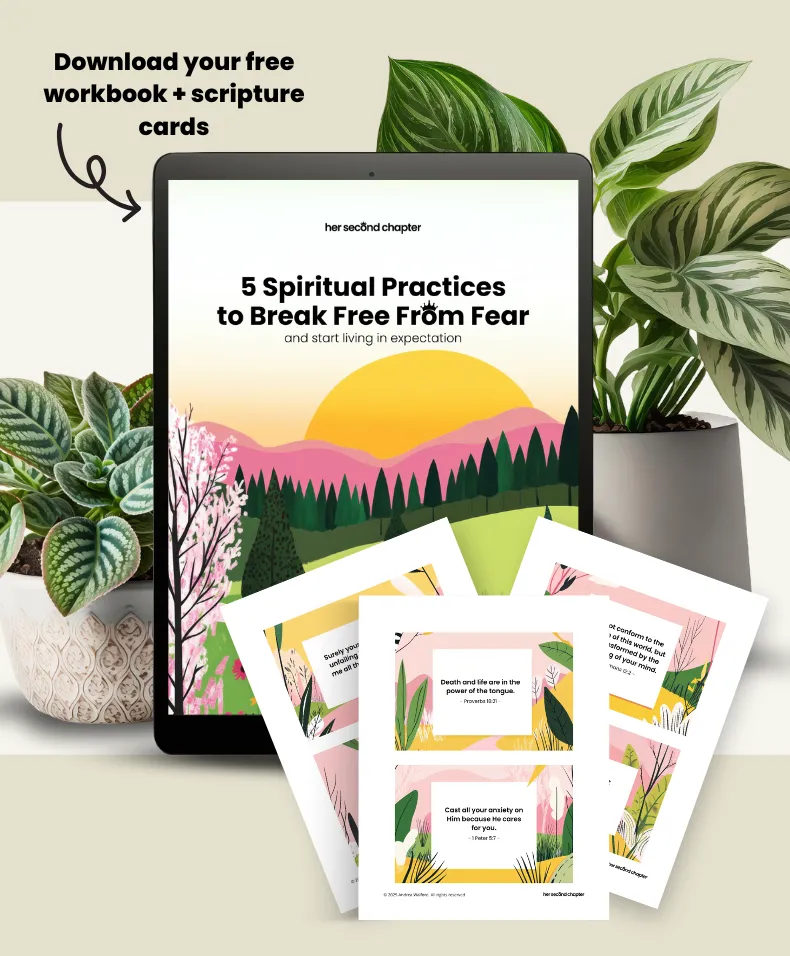This post was originally published on Substack on February 24, 2025. I’m sharing it here for my blog readers who may have missed it.
When the World Feels Uncertain, Fear Becomes the Default
You don’t have to look far to find reasons to worry.
The news is a constant stream of bad headlines.
The economy feels unstable.
Groceries cost more than they used to.
People are struggling.
And even beyond what’s happening in the world, there’s the personal stuff—the unexpected bills, the relationships that feel strained, the health challenges, the endless uncertainty about what comes next.
It’s a lot.
And when life feels unpredictable, it’s easy to slip into survival mode—preparing for the worst, expecting things to fall apart, and holding your breath, waiting for the next bad thing to happen.
Maybe you’ve caught yourself thinking:
- What now? What next? When is the other shoe going to drop?
- I want to hope for good things, but I don’t want to be disappointed.
- What if I trust God, and things still go wrong?
I get it.
When life knocks you down enough times, it starts to feel safer to expect less—to lower your hopes so you don’t have to feel the pain of disappointment.
But here’s the problem:
Bracing for the worst doesn’t actually protect you. It just steals your peace in the present.
That was exactly where I found myself. I didn’t even realize how much I had started to expect bad things—until one day, I realized I wasn’t just reacting to what had happened. I was living like it was inevitable that things would keep going wrong.
How I Started Expecting the Worst Instead of Trusting God
It didn’t happen overnight.
It happened slowly, little by little, one hard thing at a time.
At first, I was just trying to get through. I told myself, It’s just a rough season. It’ll pass.
But the season kept going.
And the more that went wrong, the more I started to believe that this was just my new normal—that life was a series of setbacks, and my best bet was to brace for impact.
Here’s just a glimpse of what the last few years have looked like:
- Losing my grandfather to medically assisted suicide. Watching someone I loved reach a place of such deep suffering that they felt they had no other choice.
- My father-in-law being diagnosed with stage 4 pancreatic cancer. Ten months of watching him fight, only to lose him in the end.
- Bringing someone into our home to help them get back on their feet—only for it to backfire in the worst possible way. We were lied to, stolen from, and betrayed. Our trust was broken, and our family was hurt in ways I never could have imagined.
- A basement flood that took over a year to resolve. Months of insurance battles, contractors, and stress—on top of everything else.
- A car crashing through our back fence. More insurance battles. And on top of that? One of our cars was totalled, and another was damaged.
- Financial uncertainty. Supporting a household of nine, with rising costs and unexpected expenses piling up.
And that’s not even everything.
It felt like every time I caught my breath, something else would happen. And after a while, I stopped expecting things to get better. I started expecting things to go wrong.
- When the phone rang unexpectedly? Bad news.
- When an email came in? Something else to deal with.
- When things felt calm? It was just a matter of time before the next crisis.
I didn’t even realize how much I had shifted into a mindset of worst-case-scenario living—until one day, something small happened, and my immediate thought was:
“Of course. What else is new?”
Not a prayer. Not a thought of trust. Not even frustration. Just resignation.
I had stopped hoping for good things. I had stopped expecting God to come through.
I wouldn’t have said it out loud, but deep down, I was living like God had forgotten about me.
But here’s the truth: Even when we stop expecting good things, God’s goodness never stops pursuing us.
“Surely your goodness and unfailing love will pursue me all the days of my life, and I will dwell in the house of the Lord forever.” (Psalm 23:6)
Maybe that’s where you are too.
Maybe life has been so heavy for so long that you’ve stopped expecting good things. Maybe you’re preparing for disappointment because it feels easier than getting your hopes up.
I get it. But here’s what I’ve learned:
Bracing for the worst doesn’t protect you. It just keeps you trapped in fear.
I thought I was being wise by preparing for the worst. I thought it would soften the blow. But in reality, it was robbing me of joy in the present. And it wasn’t how God wanted me to live.
Because if bracing for the worst isn’t the answer… what is? The answer isn’t found in trying to control outcomes—it’s found in trusting the character of God.
So how do we stop bracing for the worst and start living in expectation of God’s goodness?
Bracing for the Worst Feels Like Protection, But It Steals Your Joy
When life is hard for long enough, you start to believe that bracing for the worst is the safest way to live.
It feels like a kind of protection.
- If I expect things to go wrong, then I won’t be as disappointed when they do.
- If I don’t get my hopes up, then it won’t hurt as much if things don’t work out.
- If I prepare for the worst, then at least I won’t be caught off guard.
It makes sense, doesn’t it?
When you’ve been knocked down enough times, it seems easier to stay on the ground than to stand up, only to be pushed down again.
But here’s the problem:
Bracing for the worst doesn’t actually protect you. It just makes you live in fear of what might happen, instead of faith in what God is doing.
The Hidden Cost of Living in Survival Mode
I didn’t realize it at the time, but by trying to protect myself from disappointment, I was actually making my life smaller.
- I wasn’t allowing myself to hope, because I didn’t want to be let down.
- I wasn’t allowing myself to dream, because I was afraid of failing.
- I wasn’t fully experiencing joy, because I was always waiting for the next crisis.
I was so busy preparing for worst-case scenarios that I was missing what was happening right in front of me.
And the worst part?
Even when something good did happen, I didn’t trust it.
Instead of celebrating it, I’d think:
- Well, let’s see how long this lasts.
- I bet something bad is coming right behind this.
- I don’t want to get too comfortable, because it could all be taken away.
That’s what fear does.
It shrinks your world.
It robs you of joy.
It keeps you trapped in survival mode, even when you don’t have to be.
What If There’s Another Way?
At some point, I realized something had to change. I was tired of living like this.
I was tired of holding my breath, waiting for the next bad thing.
I was tired of waking up every morning with the weight of anxiety pressing on my chest.
I was tired of feeling like I had to prepare myself for disappointment, instead of expecting God’s goodness.
And maybe that’s where you are too.
Maybe you’re tired of feeling like you always have to be on guard.
Maybe you’re tired of carrying the weight of “what if things go wrong?”
Maybe you’re tired of waiting for the other shoe to drop.
If that’s you, then let me tell you this:
God did not create you to live in a state of constant fear.
There is another way to live. A way that isn’t ruled by anxiety, but by peace.
A way that isn’t shaped by fear, but by trust in God’s goodness.
A way that allows you to step into each day, not expecting disaster—but expecting that, no matter what happens, God will be there, and He will be good.
So how do we stop bracing for the worst and start living in expectation of God’s goodness?
What If There’s Another Way?
At some point, I realized something had to change. I was tired of living like this.
I was tired of holding my breath, waiting for the next bad thing.
I was tired of waking up every morning with the weight of anxiety pressing on my chest.
I was tired of feeling like I had to prepare myself for disappointment, instead of expecting God’s goodness.
And maybe that’s where you are too.
- Maybe you’re tired of feeling like you always have to be on guard.
- Maybe you’re tired of carrying the weight of “what if things go wrong?”
- Maybe you’re tired of waiting for the other shoe to drop.
If that’s you, then let me tell you this:
God did not create you to live in a state of constant fear.
There is another way to live. A way that isn’t ruled by anxiety, but by peace.
A way that isn’t shaped by fear, but by trust in God’s goodness.
A way that allows you to step into each day, not expecting disaster—but expecting that, no matter what happens, God will be there, and He will be good.
So how do we stop bracing for the worst and start living in expectation of God’s goodness?
Expect Good Because God is Good, Not Because Life is Predictable
For so long, I thought expecting good things meant assuming everything would go the way I wanted.
But life isn’t predictable. Bad things still happen. Prayers don’t always get answered the way we hope. Hard seasons come, and sometimes they last longer than we ever imagined.
So how can we expect good things when we know that life doesn’t always work out the way we want?
We need to realize that:
Expecting good things isn’t about believing life will always be easy—it’s about believing that God is always good.
Where We Get It Wrong
A lot of us live with a faith that’s conditional.
We say we trust God, but deep down, we’re tying our faith to specific outcomes:
- If this situation works out, then I’ll believe God is good.
- If I get the breakthrough I’m praying for, then I’ll trust Him.
- If my circumstances change, then I’ll have peace.
But that’s not trust. That’s trying to make God fit into our expectations.
And the problem is, when things don’t go the way we want, we start to doubt:
- Did I miss something?
- Is God really going to come through for me?
- Does He even care?
But what if our expectations weren’t based on what happens to us, but on who God is?
A Different Way to Live
One of the things I’ve had to do is shift my mindset. Instead of saying:
❌ “I expect this situation to turn out exactly the way I want.”
I’ve started saying:
✅ “I expect God to be good to me, no matter what happens.”
That’s the difference.
One is tied to circumstances—and when those circumstances change, so does our faith.
The other is tied to God’s character—which never changes.
- God is good when life is easy.
- God is good when life is hard.
- God is good when we don’t understand what He’s doing.
His goodness isn’t dependent on our situation—it’s who He is.
That’s what David meant when he wrote:
“I remain confident of this: I will see the goodness of the Lord in the land of the living.” (Psalm 27:13)
David didn’t say, “I hope things go my way.”
He said, “I will see the goodness of the Lord.”
That was his expectation. He knew that:
Life won’t always be smooth, but God’s goodness will always be present.
And that’s the shift we need to make.
What If You Stopped Expecting the Worst?
What if, instead of assuming things will fall apart, you started assuming that God is working things together for your good?
What if you started believing that, even in the middle of the unknown, God is leading you somewhere good?
What if you started to expect that, even if things don’t go your way, you will still be okay—because God will take care of you?
Because He will. He always does.
But how do we actually train our hearts to believe this?
How do we start shifting from fear to expectation?
It starts with what we focus on.
A Simple Shift: Noticing God’s Goodness Daily
One of the biggest reasons we default to expecting bad things is because our minds are wired to focus on what’s wrong.
It’s human nature.
We notice problems more than blessings.
We dwell on what’s missing instead of what’s already there.
And over time, without realizing it, we train our brains to look for what’s wrong instead of looking for God’s goodness.
But here’s the good news:
Just as we’ve trained ourselves to expect bad things, we can also train ourselves to expect good things.
And it starts with one small shift: noticing God’s goodness daily.
The Power of Paying Attention
Most of the time, God’s goodness is already all around us—we’re just not looking for it.
- That encouraging text message from a friend? That was God’s kindness.
- The unexpected discount on something you needed? That was God’s provision.
- That moment of peace in the middle of a chaotic day? That was God’s presence.
He is always working. Always providing. Always showing up.
But if we don’t train ourselves to see it, we’ll miss it.
The “Daily Goodness List”
One simple way to shift your focus is by starting a Daily Goodness List.
Here’s how it works:
- Every evening, take two minutes to write down one way you saw God’s goodness that day.
- It can be big (an answered prayer) or small (the beauty of the sunrise).
- The point is to train your mind to recognize God’s goodness in your daily life.
It might feel strange at first. But over time, this practice will start to reshape your thinking. Instead of defaulting to worry and fear, you’ll start noticing how much good is already present in your life.
You’ll stop assuming that things are going to fall apart, and instead start believing that God is working things together for your good.
Small Shift, Big Change
This isn’t about pretending life is perfect.
It’s not about ignoring challenges or forcing yourself to be “positive.”
It’s about choosing where to place your focus.
Because what you focus on grows.
If you constantly focus on what’s wrong, fear will grow.
If you intentionally focus on where God is moving, faith will grow.
And when you start looking for evidence of God’s goodness? You’ll begin to expect it.
What’s next?
We don’t have to live in fear of what’s coming next.
We don’t have to brace for disappointment.
We don’t have to assume that things will always go wrong.
Instead, we can expect good things. Not because life is perfect. Not because we always get what we want. But because…
God is good, and His goodness doesn’t change—even when life does.Right now, you have a choice.
You can keep living in fear of the unknown.
Or you can:
Choose to expect that no matter what happens, God’s goodness will meet you there.
Which one will you choose?
You don’t have to stay stuck in fear. The shift starts here.
With love and belief in you,








